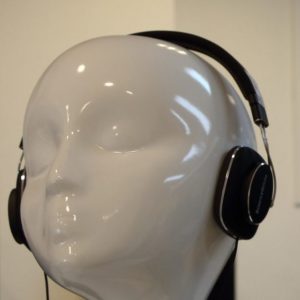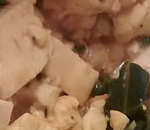Do You Have a Strong Voice?
This is something you mostly hear in politics and publishing—but it means different things in the two venues. In politics, strong voice means: does your voice have traction—can you effect change? In publishing, it’s more like one of those retinal scanners—or the voiceprint security on your phone—can others identify you as the author by reading your prose alone? Can you tell if an excerpt paragraph came from J. K. Rowling, or Stephanie Meyer, or Stephen King?
That’s voice.

So, do you have it? That’s the question. It might be the worst question for new writers. This ephemeral thing, a term that everyone uses, which is critical for career success, that no one can really define—a case of I know it when I read it.
Very helpful.

Is Strong Voice Even Desirable?
There are writers with strong voice, and writers with invisible voice. Both perform well. If anything those with invisible voice may perform better on average. Voice is like an accent. Just like listening to someone with a strong accent, it can be fascinating at first—engrossing, but then a bit wearisome, and by hour five, abrasive. You’re asking them to listen to your voice for a ten to fifteen hour stretch—that could be a bit much unless they really like your particular accent. The appeal of your voice probably won’t be equal to all readers—some will like it, some will hate it, some will feel tepid until they grow to loath it. Strong voice can sell well, it can also be a turn-off.

But there is a voice that appeals almost equally well to almost everyone—the invisible voice. Thus, those with almost no voice can have a huge following. Thrillers and their writers are the flagship of this.

There are a few Thrillers sporting strong voice sprinkled in the bests-seller lists. But, if you’re hunting writing as translucent as glass with massive mass market appeal look to the Thriller shelves.

Weak Voice—Like Limp Lima Beans
Strong voice sells, invisible voice often sells even more. Then what is selling poorly? Weak voice. It’s there—like the food prepared by someone who just switched to vegetarian cooking—an array of unperfected, occasionally unappealing flavors, presented in random order. Is that millet patty? Or tofu steak? What is up with this texture that I can’t tell the difference?

I like tofu done well, but week food is a waste of time. Present me vivacious lima beans—peppered with lemon omani and slathered in Irish butter.
Or maybe bitter melon if I’m feeling courageous.

The Invisible Man or Wonder Woman?
So you have a stylistic choice to make for yourself—will you cultivate distinctive personality or expunge it from your work? Either is entirely viable. It’s probably good to look at both your current tendencies and the books you enjoy reading the most. You may be gifted in one direction or the other. Both the poetic writer and the gritty writer have strong voices—this isn’t about pretension—it’s about personality.

Your genre may influence your decision—in Wonder Fiction such as Science Fiction, Fantasy, and Horror, authors tend to have strong voice.

Voice Grows Organically, Like Kudzu

Strong voice develops organically. It flourishes, it takes over, climbing up girders, strangling trees, caving in roofs—well perhaps not that extreme. But it is the small seed that grows to take over your identity—defining you. Legend.

It’s a thing of accreted micro fauna—like a coral reef. Skeletons of millions of small decisions piled one atop the other. They say it takes you a million words to get good—that’s no happenstance. That’s your time in the chrysalis. Just as your time devouring the local library was your caterpillar stage. When I was young I wanted to be an entomologist, so my affection for caterpillars and my choice to use them in my thoughts of “bookworms” goes back to kindergarten—that’s the old bones of my voice. My interest in kudzu came from visiting my grandmother in the South when I was in grade school—I always wanted to see kudzu—an aspiration that horrified her. I learned to stop asking if this vine or that one was kudzu—but I was still always on the lookout for house eating plants.

My fondness—perhaps over-fondness, for em-dashes came after I’d been writing for a few years post college. College made me a colon and semi-colon obsessed creature. It wasn’t till I was writing with flow in mind, and targeting a wider readership than professors, that I found the jump cut elegance of em-dash transitions seductive. Entwining words together into long vines—scaling all obstacles, reaching for the sun. A kudzu of thoughts.
Voice is Honed with Practice

Voice is honed by you—a weapon to immerse readers, willing or unwilling. It becomes like the business cards in American Psycho, so subtly distinctive that you can ruinously one-up the competition just by laying down a sentence. When you’ve long mastered other writing skills, voice will still be there, challenging you.
Be more you—always be more you.
Next time in You as Seiyū: Finding Your Voice & Owning New Roles we’ll explore some advanced tricks and talk about the deep magic of Voice.




